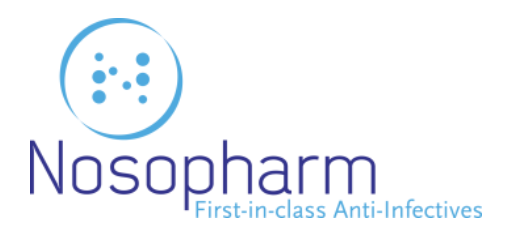Members Login

Channels
Special Offers & Promotions
Nosopharm receives 1 million Euro loan from Bpifrance
 Funding for preclinical research with the view to applying for clinical trial authorisation for first drug candidate in new class of antibiotics
Funding for preclinical research with the view to applying for clinical trial authorisation for first drug candidate in new class of antibiotics
Nosopharm, a company dedicated to the research and development of new anti-infective drugs, announces that it has received €1 million ($1.2M) in funding from Bpifrance in the form of an interest-free loan. This loan will enable Nosopharm to undertake chemistry, manufacturing and controls (CMC) development and regulatory preclinical research for its main drug candidate, NOSO-502. The company plans to submit a clinical trial authorisation application in 2019 with a view to beginning the first clinical trials in humans in 2020.
NOSO-502, the first clinical candidate in the new class of antibiotics known as Odilhorhabdins, is the most advanced molecule in Nosopharm’s portfolio. It inhibits bacterial translation with a new action mechanism. NOSO-502 is intended primarily for the treatment of nosocomial infections caused by Enterobacteriaceae, including polymyxin- and carbapenem-resistant Enterobacteriaceae (CRE). No novel class of antibiotics against those pathogens has been introduced into clinics since the 1980s.
NOSO-502 has proven to be effective in vivo in several Enterobacteriaceae infection models. The molecule has also shown good tolerance in vivo. It has demonstratred antibacterial activity in vitro against multi-drug resistant clinical isolates (KPC, NDM, OXA and MCR among others). NOSO-502 therefore has significant potential for the treatment of serious nosocomial infections.
“Carbapenem-resistant Enterobacteriaceae (CRE) are still not very familiar to the general public. They are often overshadowed by Methicillin-resistant Staphylococcus aureus (MRSA) which have dominated discussions for several years. However, the WHO has identified this class as a priority in terms of the need to discover new molecules,” said Sandra Dubos, business innovation manager at Bpifrance. “Nosopharm’s strategic development choices have therefore allowed it to take advantage of a window of opportunity that few players will be able to address with new molecules. We have supported Nosopharm since its creation and we are particularly proud to be on board with this project, with which Nosopharm can reach a key milestone in its development.”
“The funds provided by Bpifrance represent welcome financial support that will smooth the way for us to move towards the next decisive steps for our company, including the submission of a clinical phase authorisation application for NOSO-502,” said Philippe Villain-Guillot, chief executive officer of Nosopharm. “We would like to thank Bpifrance for its trust. We are delighted to be able to push this new first-in-class antibiotic towards the clinical stage and are focusing our efforts on the progression of this project."
Hospital pathogens with multiple antibiotic resistances are responsible for at least 380,000 infections and 25,000 directly related deaths in the European Union every year. The annual treatment and social costs have been estimated at some €1.5 billion ($1.59bn). From a global perspective, antimicrobial resistance could kill up to ten million people every year by 2050, which could cost up to €94 trillion ($100tn). In February 2017, the WHO published a list of priority pathogens for the development of new antibiotics. Enterobacteriaceae were at the top of that list, with critical priority. In 2016, among the Enterobacteriaceae in the European Union, 5% of Escherichia coli and 16% of Klebsiella pneumoniae strains had combined resistance to cephalosporins, aminoglycosides and fluoroquinolones. For K. pneumoniae, resistance to carbapenems, which are used as last resort antibiotics, was 6%.
Media Partners


